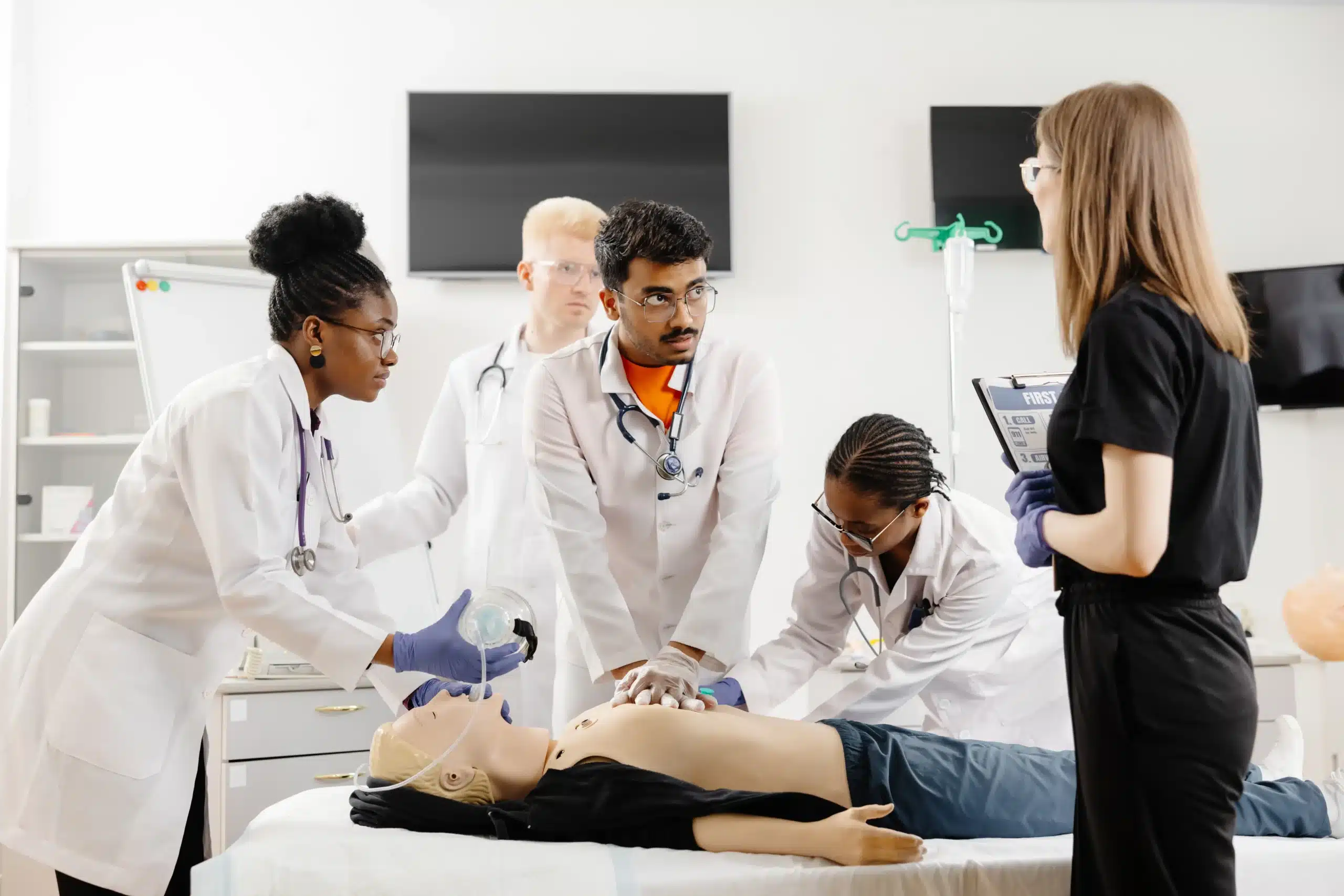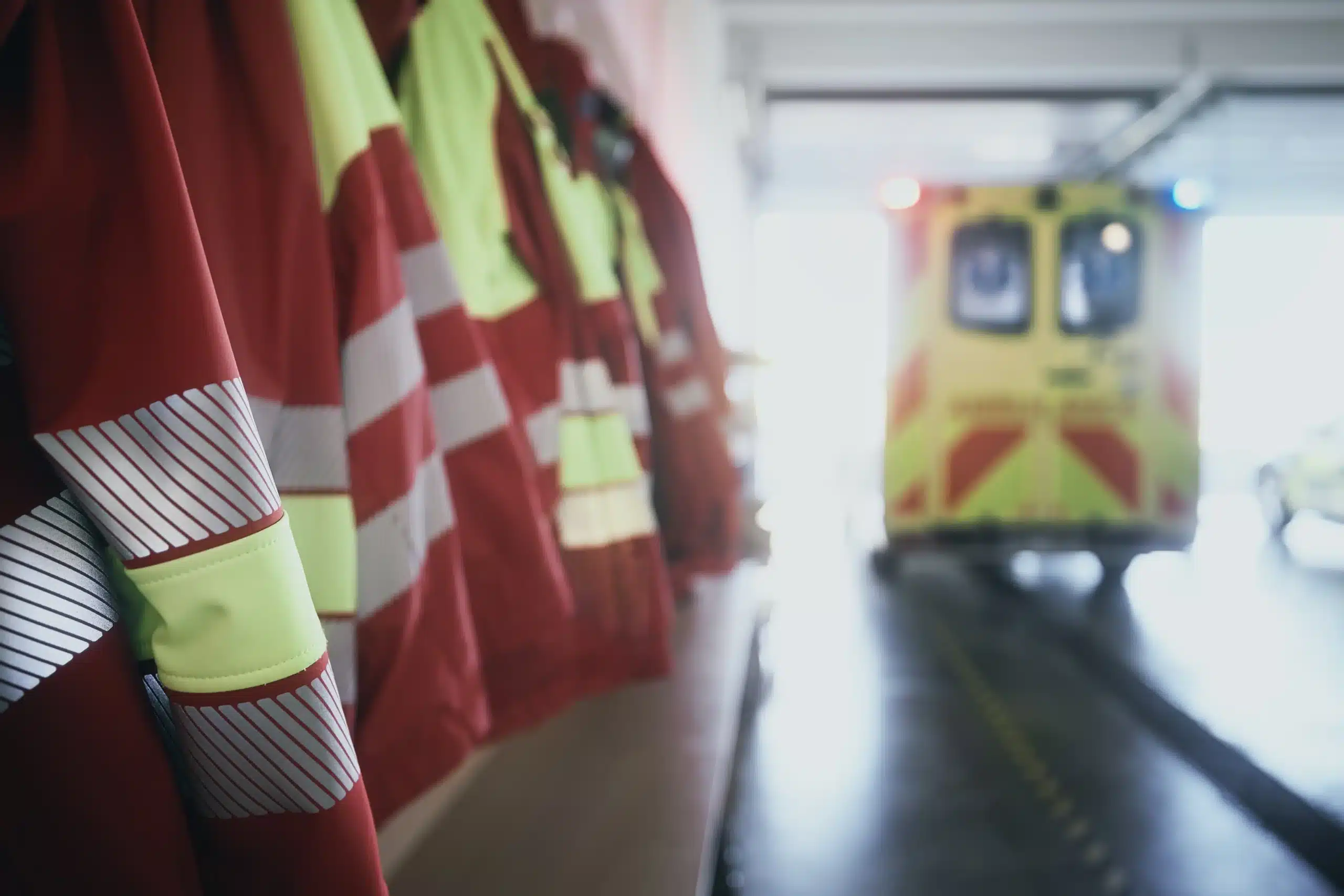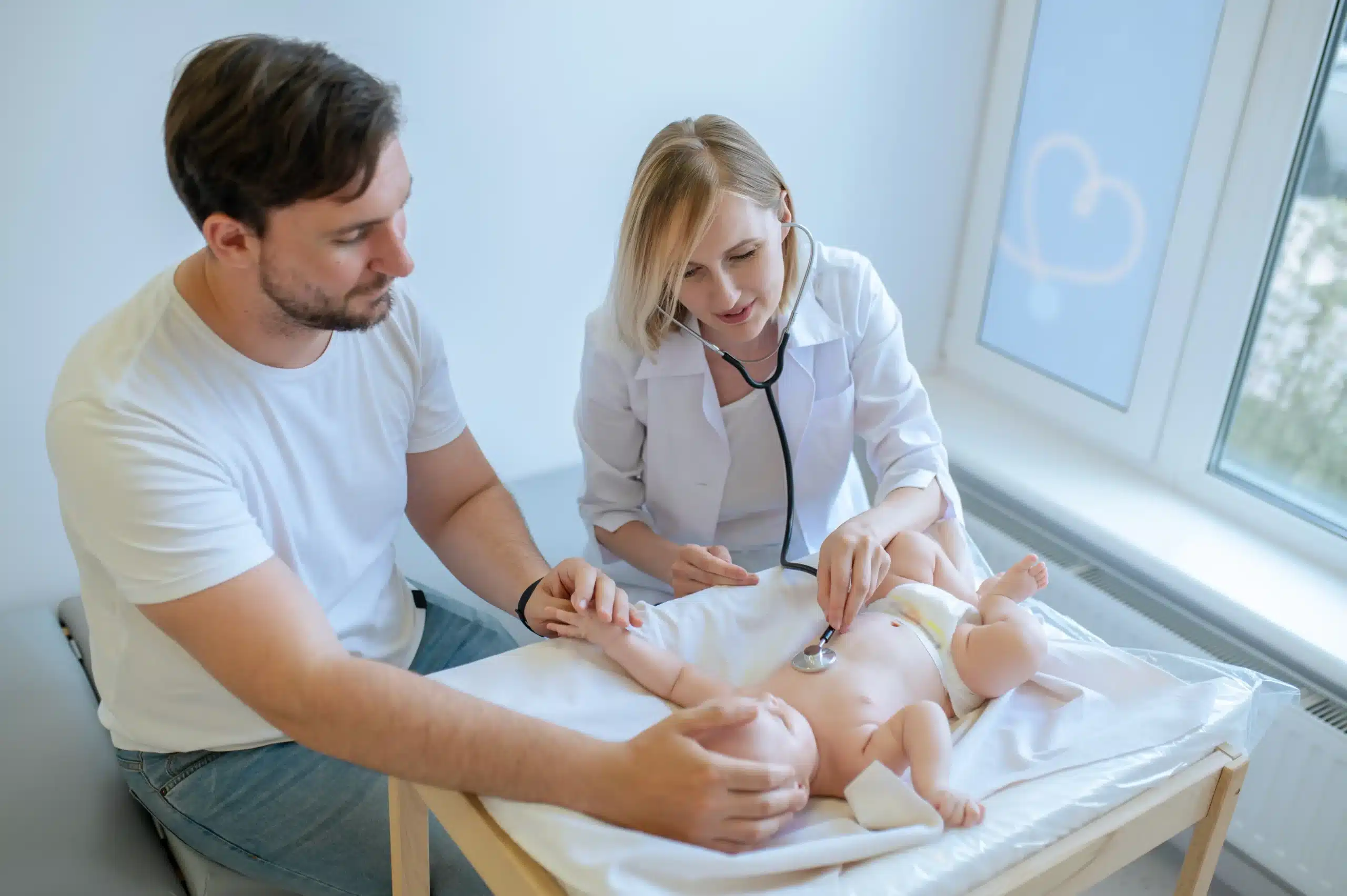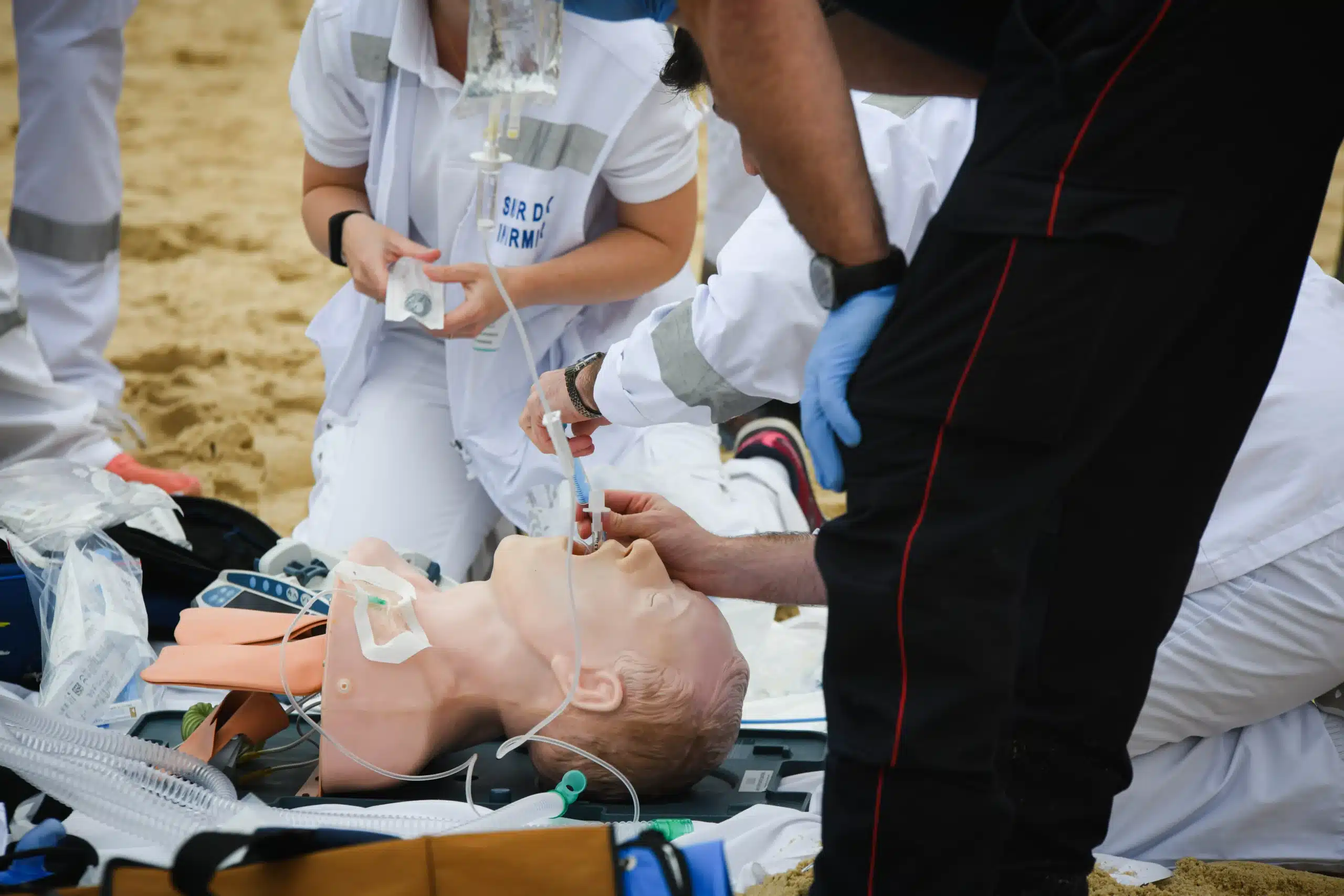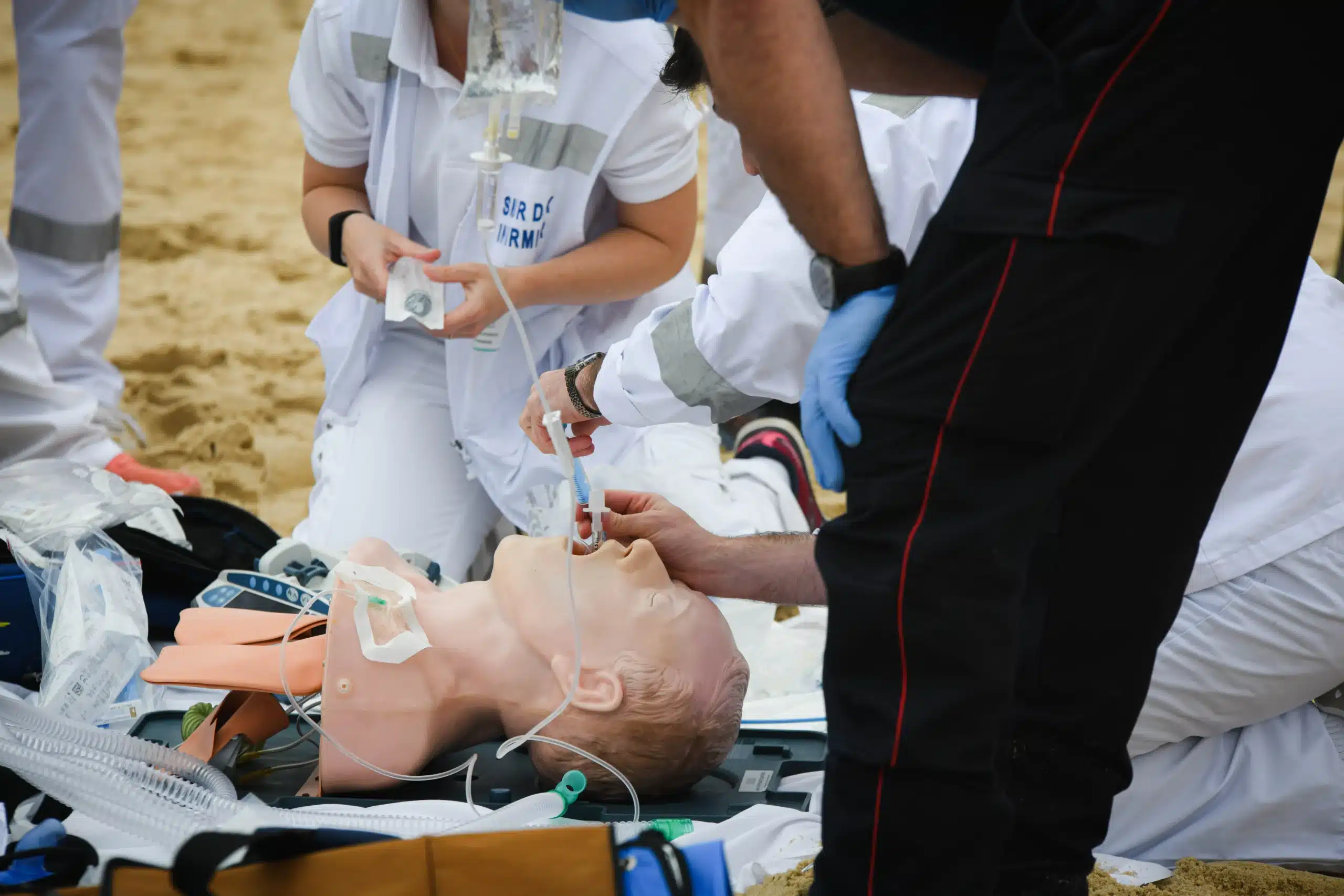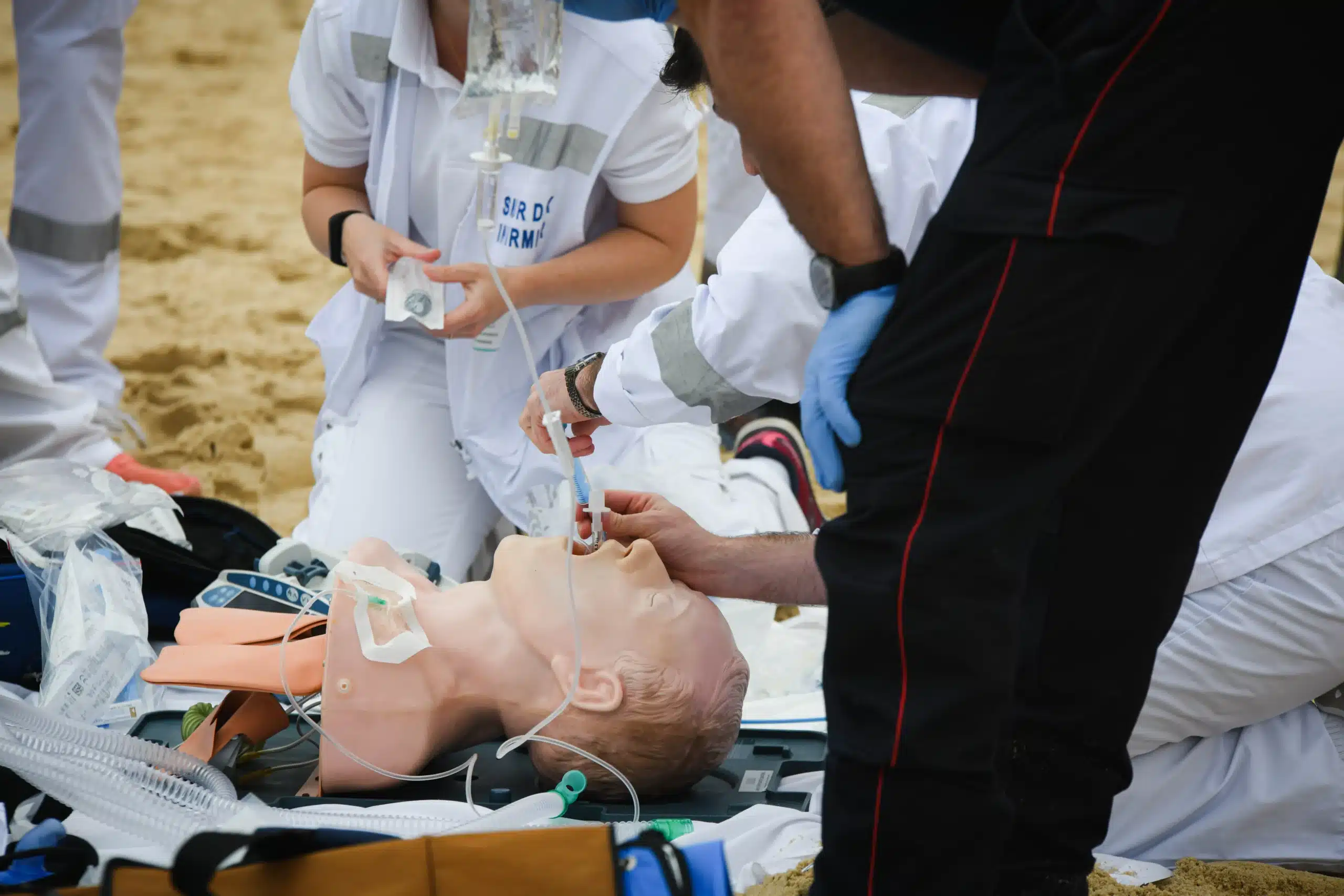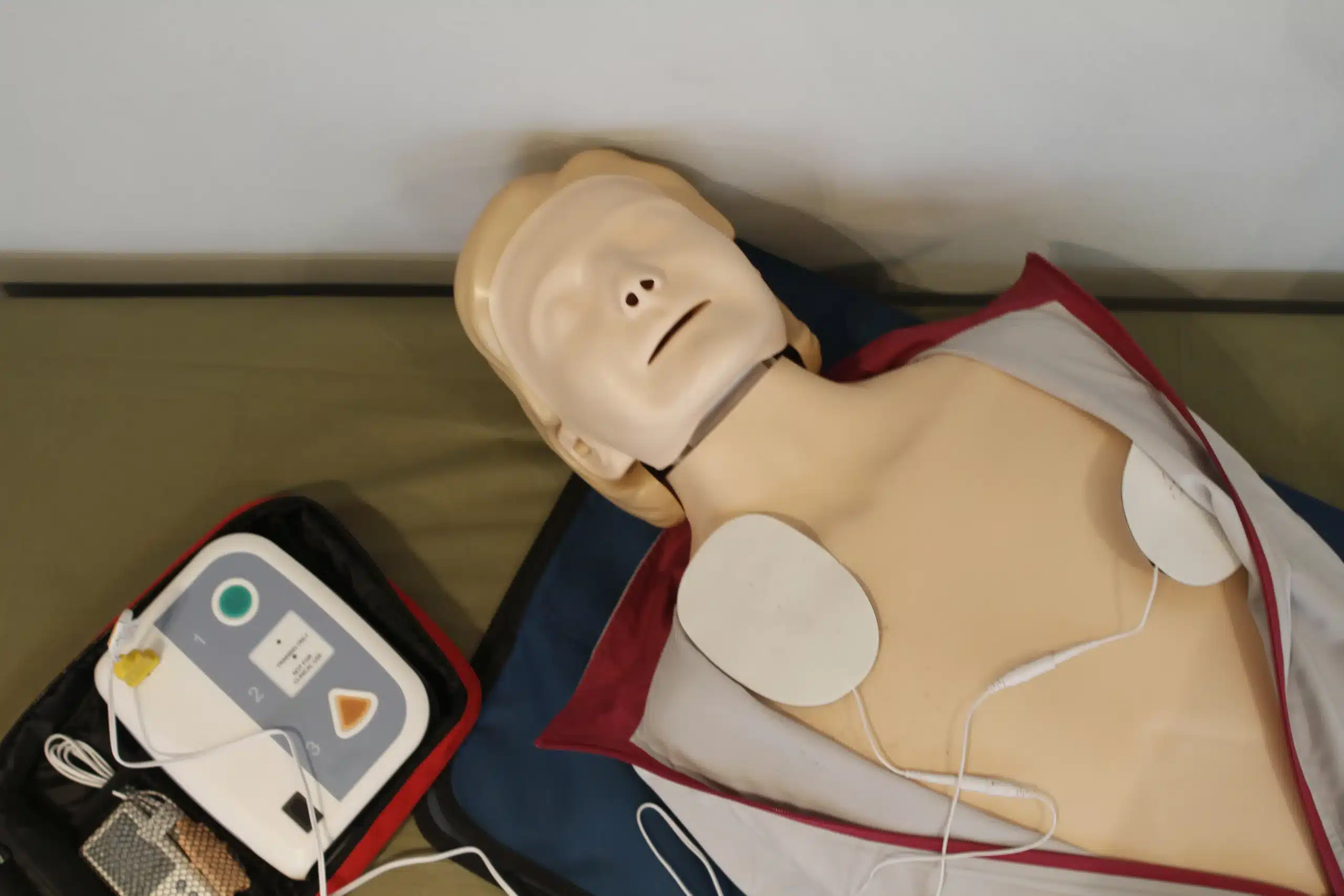Working with children in a healthcare setting requires specialized knowledge and skills, especially when facing emergencies. Pediatric Advanced Life Support (PALS) certification provides healthcare professionals in San Ramon with the training necessary to confidently manage critical situations involving infants and children. This comprehensive guide explores the ins and outs of PALS certification, covering everything from course content and costs to finding the right training provider in San Ramon. We’ll delve into the importance of PALS, the specific skills you’ll learn, and how to choose a course that meets your needs. Whether you’re a seasoned professional or just starting your career, understanding the value of pediatric advanced life support in San Ramon is essential for providing the highest quality of care.
Key Takeaways
- PALS certification equips healthcare providers with essential skills for pediatric emergencies. It’s a crucial investment for anyone working with infants and children, covering everything from basic life support to advanced airway management. Prioritize hands-on training and realistic simulations for practical experience.
- Choosing the right PALS course requires research. Look for AHA-certified providers like Safety Training Seminars, consider instructor experience and class size, and inquire about discounts or promotions. A blended learning approach can offer flexibility and effective knowledge retention.
- PALS training is a valuable investment in your professional development. It enhances your skills, builds confidence in critical situations, and demonstrates your commitment to providing high-quality care. Actively participate in your chosen course and review materials beforehand to maximize your learning.
What is Pediatric Advanced Life Support (PALS)?
What is PALS?
Pediatric Advanced Life Support (PALS) is specialized training for healthcare providers to effectively manage critically ill infants and children. The course material comes from the American Heart Association (AHA) and highlights the key physiological differences between pediatric and adult patients. This training gives providers the knowledge and skills to respond quickly and confidently in emergencies. Our PALS courses at Safety Training Seminars cover a wide range of topics, from basic life support to advanced airway management and treatment protocols. For more information on basic life support, check out our BLS course options.
Why is PALS Certification Important?
PALS certification is essential for healthcare professionals who work with children. It provides the skills necessary to handle pediatric emergencies, which often present differently than adult emergencies. The training focuses on recognizing and managing life-threatening conditions specific to young patients. Completing a PALS course improves the quality of care you give and increases your confidence in critical situations. The blend of online learning and hands-on practice at Safety Training Seminars ensures you’re prepared for real-world scenarios. We also offer group discounts for PALS certification, making it easier for teams to train together.
Find Top PALS Providers in San Ramon
Finding the right Pediatric Advanced Life Support (PALS) provider is crucial for receiving high-quality training. Here are some reputable options in San Ramon:
American Heart Association (AHA)
The American Heart Association offers PALS courses in San Ramon, equipping healthcare providers with the knowledge and skills to manage pediatric emergencies. Their established curriculum and training standards make them a reliable choice.
Safety Training Seminars
Safety Training Seminars is a woman-owned AHA Training Center offering various American Heart Association courses, including PALS. Their commitment to excellent customer service and comprehensive training creates a supportive learning environment. They also offer a variety of courses in nearby Pleasanton, including BLS, ACLS, PALS, and CPR and First Aid. For larger groups, they provide discount group classes and also offer RQI classes. Their low price guarantee ensures competitive pricing for all their courses.
Lifework Education
Lifework Education, formerly HeartShare Training, runs an East Bay CPR Training Center in San Ramon. They offer various certifications, including BLS, ACLS, PALS, and NRP, making them a convenient option for healthcare professionals seeking multiple certifications.
CPR Training Center
The CPR Training Center specializes in a range of courses, including ACLS, CPR training, and PALS. Their focus on high-quality training prepares participants for real-world medical scenarios.
Local hospitals and medical centers
Many local hospitals and medical centers in San Ramon offer PALS certification, often at no cost to their employees. These in-house programs can provide a convenient and comfortable learning experience. Check with your employer to see what training opportunities are available.
Explore PALS Course Content
PALS courses, based on the American Heart Association guidelines, focus on the rapid identification and treatment of critically ill infants and children. This specialized training gives healthcare providers the confidence to act swiftly and effectively in emergencies. Let’s explore what a PALS course entails:
Key topics covered
PALS training covers essential topics, from recognizing a child at risk of cardiac arrest to post-resuscitation care. You’ll learn systematic assessment techniques, effective breathing support strategies, and how to administer fluids and medications appropriately. The course also emphasizes teamwork and communication during resuscitation scenarios. Understanding these key elements is crucial for providing the best possible care during pediatric emergencies. For more detailed information, explore resources like the American Heart Association PALS page.
Essential skills taught
PALS isn’t just about theory; it’s about developing practical skills. The course teaches healthcare providers how to perform CPR on infants and children, use equipment like defibrillators, and manage respiratory emergencies. Because children’s physiology differs significantly from adults, PALS training emphasizes these distinctions to ensure effective treatment. These skills are regularly updated to reflect the latest research and best practices in pediatric emergency care. CPR Training Center offers more information on PALS courses.
Course duration and format
A typical initial PALS course takes about 10 hours, while renewal courses are generally shorter, around 6 hours. This timeframe allows for in-depth instruction and ample hands-on practice. The course format often combines online learning modules with in-person sessions, offering flexibility. This blended approach lets participants learn at their own pace and then apply their knowledge during interactive simulations.
Hands-on practice and simulations
One of the most valuable aspects of PALS training is the emphasis on hands-on learning. Through realistic simulations, participants practice their skills in a safe environment, building confidence and competence. These simulations often involve teamwork, mirroring real-world emergencies. This practical experience is invaluable in preparing healthcare providers to respond effectively under pressure. Safety Training Seminars prioritizes hands-on training to ensure participants gain practical experience.
Learn About PALS Certification Costs
Price range for initial and renewal courses
Expect the cost of initial PALS certification to vary, generally falling somewhere around $250. Renewal courses are typically less expensive, often around $190. Keep in mind that these prices usually don’t cover the cost of the course manual, so factor that into your budget. Pleasanton CPR Classes offers a low price guarantee to help you get the best possible rate.
Available discounts and promotions
Looking to save on your PALS certification? Many training centers offer competitive pricing and discounts. Pleasanton CPR Classes frequently has promotions, especially for group classes, so check their website or give them a call. You might find discounts for registering early or bundling courses with other certifications like CPR and First-Aid.
Return on investment for healthcare professionals
For healthcare professionals, PALS certification is a worthwhile investment. The ability to confidently manage pediatric emergencies is invaluable, impacting not only your career but also the lives of the children in your care. This training enhances your skills and contributes to a higher standard of care within your community. Think of it as an investment in both your professional development and the well-being of your patients. It also demonstrates your commitment to providing the best possible care, which can be a significant advantage in your career.
Who Should Get PALS Certified?
Knowing whether PALS certification is right for you depends on your current role and career goals. This section clarifies who needs this training and which professions benefit most.
Required Qualifications and Certifications
Pediatric Advanced Life Support (PALS) certification is designed for healthcare providers responsible for the care of infants and children. While there aren’t strict prerequisites for taking a PALS course, participants should generally have a basic understanding of life support principles. This often means having a current Basic Life Support (BLS) certification for healthcare providers. You can find more information on BLS Certification courses in Pleasanton through our website. PALS builds upon this foundational knowledge, focusing on the specialized techniques required for pediatric emergencies.
Healthcare Professions Benefiting from PALS
PALS certification is highly beneficial, and often essential, for a wide range of healthcare professionals. Doctors working with children, including pediatricians, emergency physicians, and family doctors, will find the skills taught in PALS invaluable. Other medical professionals who frequently encounter pediatric emergencies, such as physician assistants, nurses, nurse practitioners, paramedics, and respiratory therapists, also benefit significantly from PALS training. Essentially, anyone who might lead or participate in advanced life support for children should consider becoming PALS certified. This includes professionals in emergency departments, pediatric intensive care units (PICUs), neonatal intensive care units (NICUs), and urgent care facilities. Having a team of PALS-certified professionals ensures a higher standard of care and a more coordinated response in critical situations.
Get PALS Certified: The Process
Steps to obtain certification
Getting your Pediatric Advanced Life Support (PALS) certification is straightforward. You can find PALS courses through the American Heart Association (AHA) or through various training centers like Safety Training Seminars. These courses cater to both initial certification and recertification, making it easy to find the right fit for your needs. Generally, you’ll register for the course online, complete any required pre-course work, attend the in-person training (including hands-on practice), and then pass a written exam and skills test.
Renewal requirements and frequency
Your PALS certification is valid for two years. To maintain your certification, you’ll need to complete a PALS renewal course before it expires. This ensures you stay current with the latest pediatric life support guidelines and best practices. Similar to initial certification, renewal courses involve coursework, hands-on practice, and assessments.
Online vs. in-person options
PALS courses offer a blend of online and in-person components. The hands-on skills portion is always in person, but some providers, such as Lifework Education, offer online coursework for a more flexible learning experience. This blended learning approach lets you study at your own pace and then demonstrate your skills in person. The in-person skills sessions and testing typically take a few hours, so consider that when selecting a course. You can find more information on blended learning options through providers like San Ramon CPR Classes.
Choose the Right PALS Course in San Ramon
Finding the right Pediatric Advanced Life Support (PALS) course is crucial for healthcare providers in San Ramon who need these specialized skills. With several factors to consider, this guide will help you make an informed decision.
Factors to consider when selecting a provider
Look for a training center with a solid reputation and a commitment to quality instruction. The American Heart Association (AHA) offers a standardized PALS curriculum, so choosing an AHA-authorized training center like Safety Training Seminars ensures you’re receiving high-quality, recognized training. Consider factors like instructor experience, class size, and the availability of hands-on practice and simulation scenarios. Smaller class sizes often allow for more personalized attention from instructors. Check if the training center offers courses in other related certifications like ACLS or BLS if you’re looking to expand your skill set.
Questions to ask before enrolling
Before signing up for a PALS course, do your homework. Visit the training center’s website to learn about course schedules, costs, and what’s included. Don’t hesitate to contact the provider directly with any questions. Confirm that the course is AHA-certified, as this affects the recognition of your certification. Ask about the format of the course—some providers offer a blended learning approach that combines online modules with in-person skills sessions. Also, inquire about any available discounts, such as those for group registrations, which can make training more affordable.
Tips for PALS training success
To get the most out of your PALS training, choose a course that fits your learning style. A blended learning format, combining online learning with hands-on practice and simulations, can be a very effective way to learn and retain the material. Active participation is key—engage with your instructors and fellow students, ask questions, and take advantage of opportunities to practice your skills. Review the course materials beforehand to familiarize yourself with the content and come prepared to actively participate in discussions and simulations. Consider forming study groups with classmates to reinforce learning and share experiences. Remember to check the provider’s low price guarantee to ensure you’re getting the best value for your training.
Evaluate PALS Training Quality
Choosing the right PALS course is a big decision. It’s not just about getting certified—it’s about gaining the confidence and skills to handle pediatric emergencies effectively. Here’s what to look for when evaluating PALS training quality:
Instructor Qualifications and Expertise
Experienced instructors make all the difference. Look for PALS courses led by instructors with extensive backgrounds in pediatric advanced life support. Ideally, they should be healthcare professionals actively using their PALS skills. Positive reviews and testimonials can offer valuable insights into an instructor’s teaching style and effectiveness. For example, past students at Heart Start CPR in San Ramon praise instructors like Sig Jacobson and Ray for their knowledge and engaging teaching methods. This kind of feedback speaks volumes about the quality of instruction you can expect.
Training Outcomes and Participant Experiences
A high-quality PALS course should provide more than just a certification card. It should empower you to confidently apply your skills in real-life scenarios. Look for programs that emphasize hands-on practice, simulations, and collaborative learning. A blend of online learning and in-person practice, like that offered by San Ramon CPR classes, creates a comprehensive learning experience. The best courses foster a supportive learning environment where participants can share knowledge and learn from each other. Ultimately, the goal is to walk away feeling fully prepared to provide the best possible care during a pediatric emergency. The American Heart Association (AHA) offers PALS classes, ensuring a recognized standard of training.
Related Articles
- PALS Classes in Pleasanton, CA – Pleasanton CPR Classes
- PALS HeartCode in San Ramon: Everything You Need to Know – Pleasanton CPR Classes
- HeartCode PALS Dublin: Your Certification Guide – Pleasanton CPR Classes
- HeartCode PALS Pleasanton: Your Certification Guide – Pleasanton CPR Classes
Frequently Asked Questions
What exactly does PALS certification entail?
PALS certification focuses on the specific skills and knowledge needed to respond to medical emergencies in infants and children. It covers everything from recognizing early signs of distress to providing advanced life support techniques tailored to young patients. The training includes a combination of online learning and in-person skills practice, culminating in a written exam and a practical skills test.
How much does PALS certification typically cost, and are there any ways to save?
The cost of PALS certification varies but usually ranges from $190 to $250, with renewal courses often being less expensive than initial certification. Many training centers offer discounts, particularly for group registrations or bundled courses. It’s always a good idea to check with the provider for any ongoing promotions or special offers.
If I’m already BLS certified, why do I need PALS?
While BLS certification provides a foundation in basic life support, PALS goes further by addressing the unique physiological differences between children and adults. It equips healthcare providers with the specialized skills and knowledge to manage pediatric emergencies effectively, building upon the core principles of BLS.
How often do I need to renew my PALS certification, and what does the renewal process involve?
PALS certification is valid for two years. To renew, you’ll need to complete a PALS renewal course before your current certification expires. Renewal courses typically involve a review of key concepts, hands-on practice, and assessments to ensure you’re up-to-date with the latest guidelines.
Where can I find reputable PALS training providers in my area?
You can find PALS courses through the American Heart Association (AHA) website or by searching for AHA-authorized training centers in your area. Look for providers with experienced instructors, a comprehensive curriculum, and a focus on hands-on practice. Reading reviews and testimonials from previous students can also help you choose a quality training program.
